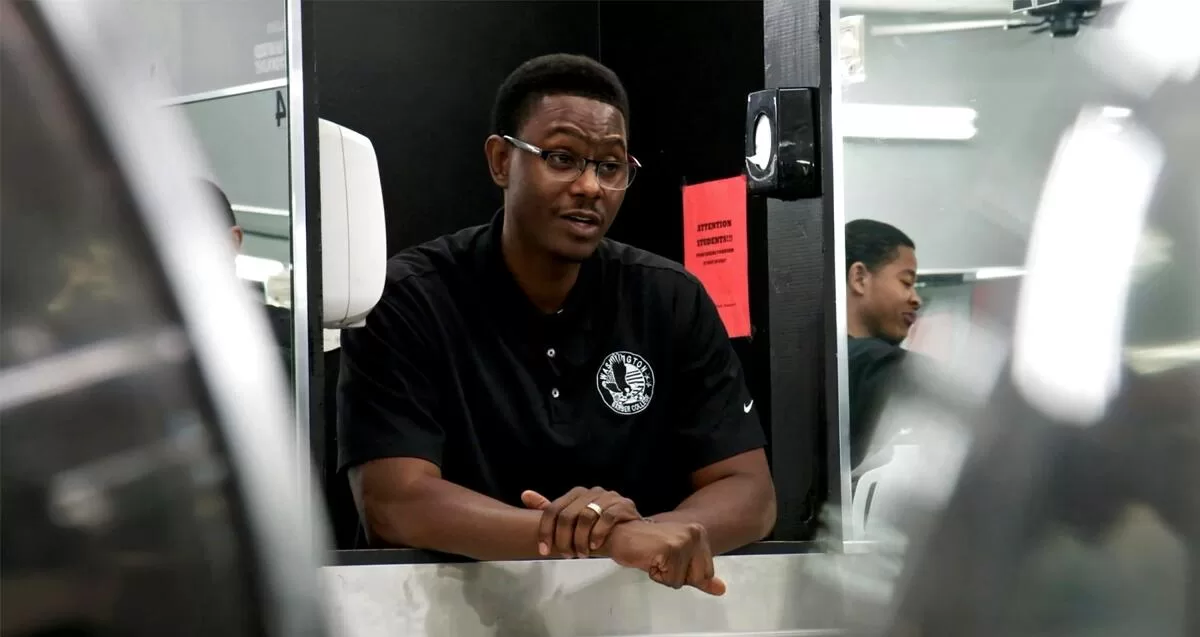‘The ABCs of Book Banning’
Despite her film’s title, Sheila Nevins is keen on the phrase “book deprivation” when describing the issue that animates (literally at times) her debut as a director after shepherding hundreds of films as president of documentaries at HBO.
“Book deprivation means you never got to it in the first place,” says Nevins, who not only wanted to spotlight titles removed from libraries, but center the individuals rarely interviewed about it: the children kept from reading material tarred by moralists. “We gave them the books to read, then filmed their reaction,” she says. “Children’s reaction to difference is a very free one. Because they’re ruled by adults, they see a kinship with difference.”
The project came together quickly last summer, says co-director Trish Adlesic. “When we finished, there were approximately 2,000 books banned in 38 states. Now, since August, there’s 6,000. Book banning is the underbelly of suppression and hate.”
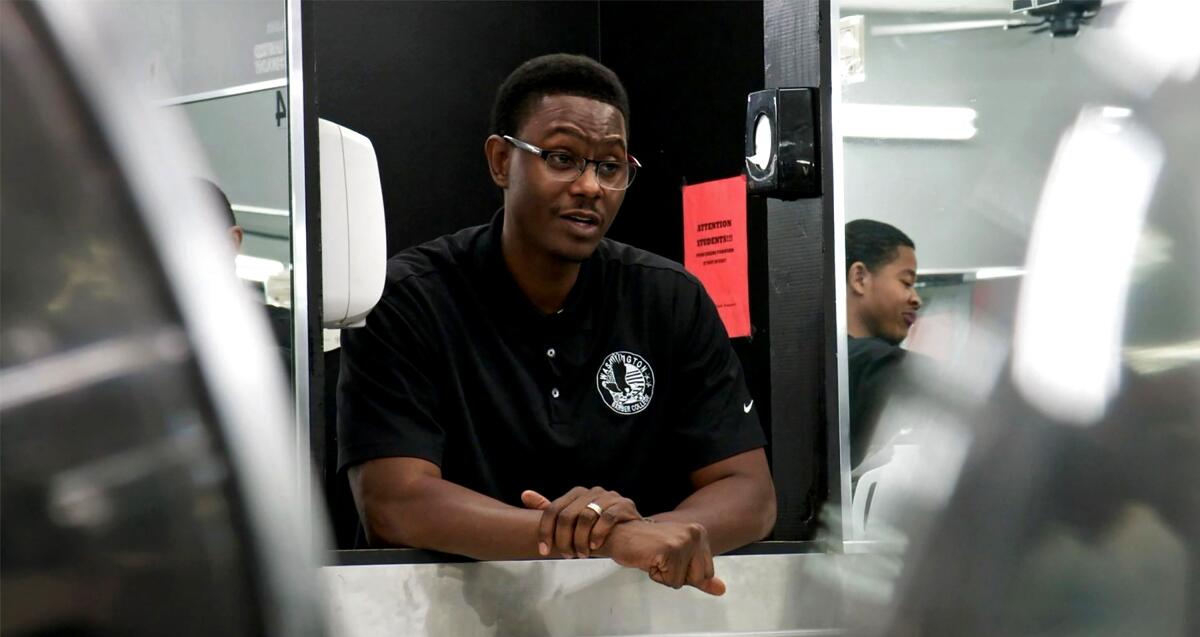
“The Barber of Little Rock” explores America’s widening racial wealth gap through the story of Arlo Washington, a local barber who founded a nonprofit community bank.
(ShortsTV)
‘The Barber of Little Rock’
When Christine Turner and John Hoffman set out to make a film about America’s debilitating racial wealth gap, they found an inspiring story in Arlo Washington, running both a barber college and a nonprofit loan fund called People Trust out of the same Little Rock parking lot.
“It’s important to note that his is the only Black-led bank in Arkansas,” says co-director Turner. “He doesn’t have a finance background. He’s a barber by trade, but he’s an entrepreneur. So we were interested in how he navigated these spaces, providing instruction as a mentor and then listening to people’s stories to see who the loan fund can support. We found that really compelling.”
The pair, whose film also gives voice to the lives the fund has helped, were especially taken with how Washington framed the problem in underserved communities like his. “Arlo says capital is the lifeblood of the community,” says Hoffman. “And if there’s no capital, blood is not circulating.”
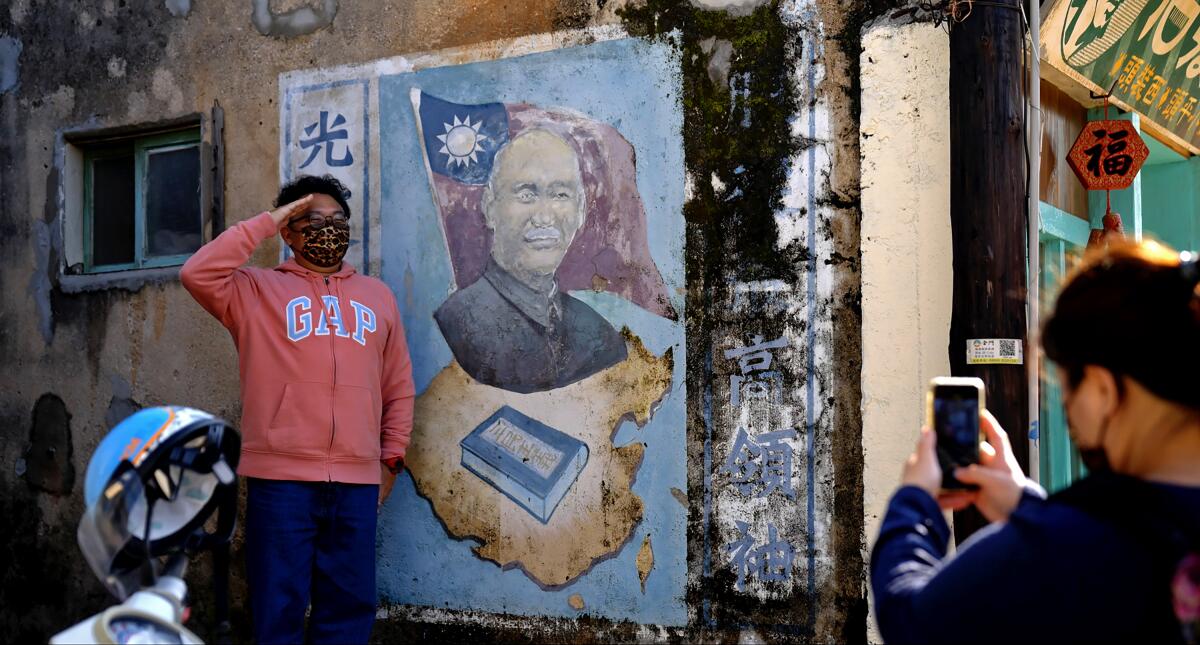
“Island in Between” examines national identity and contemplates Taiwan’s future.
(ShortsTV)
‘Island in Between’
On the Taiwan Strait island of Kinmen, a tank lodged in the sand is one marker of the last battle Taiwan fought with Communist China. In Taipei-born filmmaker S. Leo Chiang’s essayistic short, that island — battle-scarred, mythical and touristy — is also a symbol of his mixed feelings about nationality.
“The film is ultimately an examination of identity, of belonging and home,” says Chiang, who at one point explains how the way China, Taiwan and the U.S. view his various passports intensifies that limbo even more. “The passports surprised people a lot, and it was meaningful for a lot of folks who understand what it means to have two nationalities, to have many connections, loyalties and alliances to different places.”
Chiang hopes the film challenges snap assumptions about tribalism in a conflict-riddled world. “On a map, it’s one line, but human lives on these borders are very complex.”
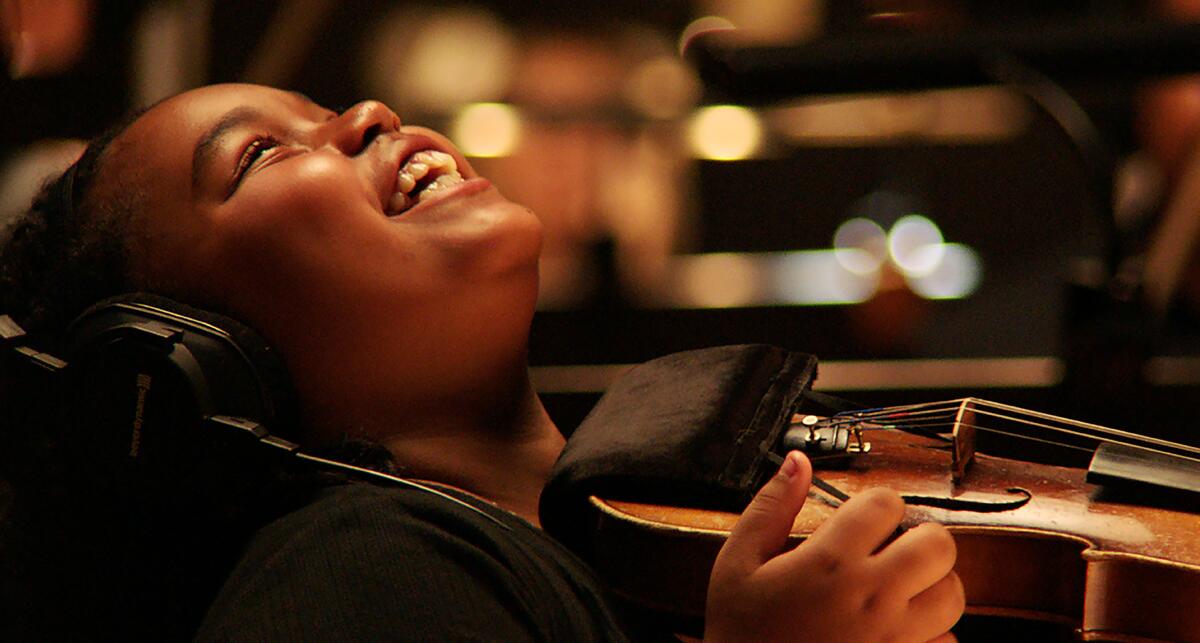
“The Last Repair Shop,” looks at the workings and craftspeople behind a city-funded repair shop for students’ instruments.
(ShortsTV)
‘The Last Repair Shop’
A warehouse in downtown Los Angeles houses the only free instrument repair service for public school music students in America, and in Ben Proudfoot’s and Kris Bowers’ gorgeously photographed film, we meet some of those soulful technicians, and the Los Angeles Unified School District kids who benefit from their loving care.
Co-director and L.A. resident Proudfoot sees in this repair shop a sign that “our society is working,” he says. It’s an idea worth advocating for, and protecting. Maybe this is an incredibly good investment, something to bring back to the table in other cities.”
For Bowers, once an LAUSD music student himself, enshrining the shop on film was the goal, “everyone feels like this is a crown jewel that we need to make sure is always here.”
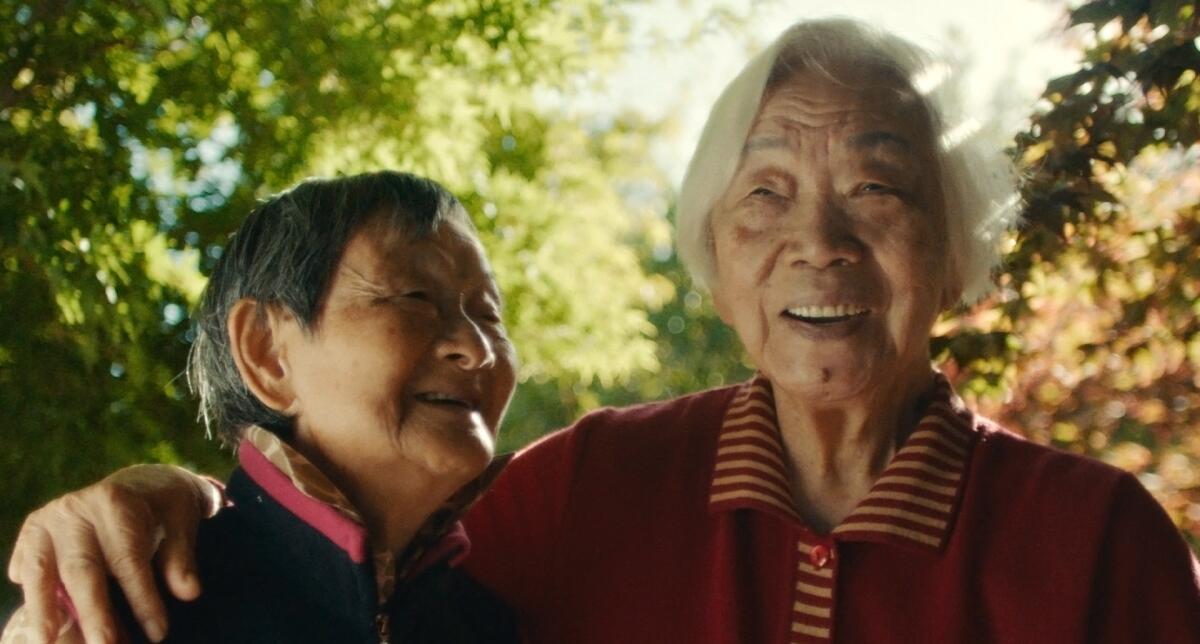
“Nai Nai and Wài Pó” captures the joys and sorrows of being old of body and young in spirit.
(Courtesy of 2024 ShortsTV)
‘Nai Nai and Wài Pó’
Sean Wang turned a loving camera on his cohabiting grandmothers, 83 and 94, to capture the joys and sorrows in being old of body and young in spirit: dancing, teasing, gardening, but also the tough memories these Chinese immigrants have, and the abiding fears that come with aging.
“I got to know them on a deeper level than I did before,” says Wang, who came to realize on “Nai Nai and Wài Pó” that spending time with loved ones and being in the same room were different things. “Filmmaking forced me to be present. It was important to make something that contained not just the silly and the slapstick, but also the melancholy and loneliness.”
Wang recalls a revealing moment when he jokingly thanked his grandmothers for being his movie stars, not expecting their emotional response. “They said, ‘No, thank you for seeing us that way,’ ” he says.
